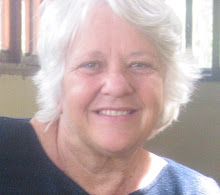Earth Day is coming soon and that will be a wonderful time to start this program. Here are the simple steps that you will be able to pledge to do - please let me know what you think. A longer paper will give directions and suggestions about how to follow these steps.
Wednesday, March 31, 2010
A 10 Step Program for Children
Earth Day is coming soon and that will be a wonderful time to start this program. Here are the simple steps that you will be able to pledge to do - please let me know what you think. A longer paper will give directions and suggestions about how to follow these steps.
10 Steps for Children
Wednesday, March 3, 2010
5th Graders in Houston & To do List
 Garden Oaks Elementary School in Houston, Texas
Garden Oaks Elementary School in Houston, Texas What you can do …
Save Electricity - Whenever we use electricity, we help put greenhouse gases into the air. By turning off lights, the television, and the computer when you are through with them, you can help a lot.
Bike, Bus, and Walk - You can save energy by sometimes taking the bus, riding a bike, or walking.
Carpool - For example, four people can ride together in one car instead of driving two or more cars to work, to the restaurant, to church.
Save Water – More and more people are using water and in many places there is not enough to go around. You can use less water when you shower and brush your teeth, when you wash dishes and clothes, when you water the lawn.
Recycle and Re-use - Recycle or re-sue cans, bottles, plastic bags, and newspapers. When you recycle, you send less trash to the landfill and you help save natural resources, like trees, oil, and elements such as aluminum. Re-using things, such as zip -lock bags and cloth items, means that less new material is utilized to produce a new product.
Talk to Your Family and Friends - Talk with your family and friends about climate change. Let them know what you've learned.
Plant Trees - Planting trees is fun and a great way to reduce greenhouse gases. Trees absorb carbon dioxide, a greenhouse gas, from the air.
Read - Learning about the environment is very important. There are many good books that will help you learn. To get started, ask a teacher or a librarian for some suggestions. You can learn about solar energy, wind energy, about how to save water, about new and more efficient kinds of transportation, and about how what we eat can help cut down on climate change.
(Adapted from EPA websites)

